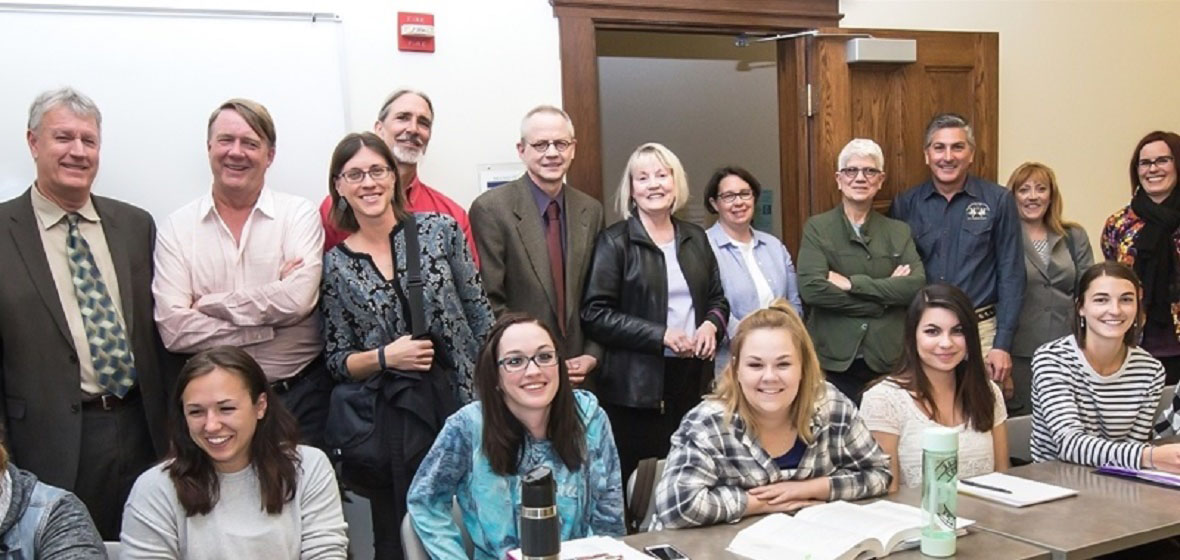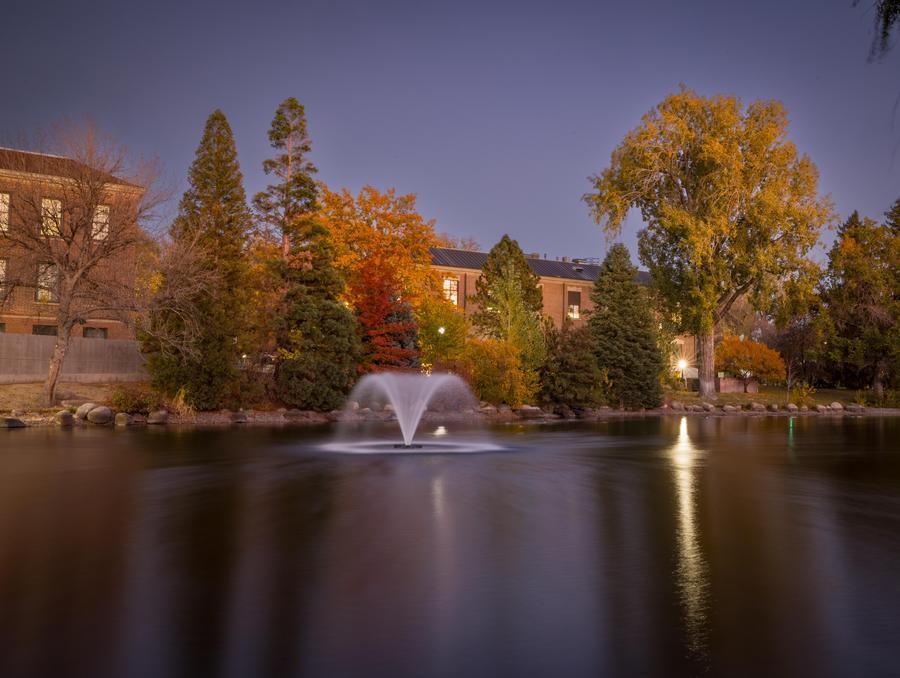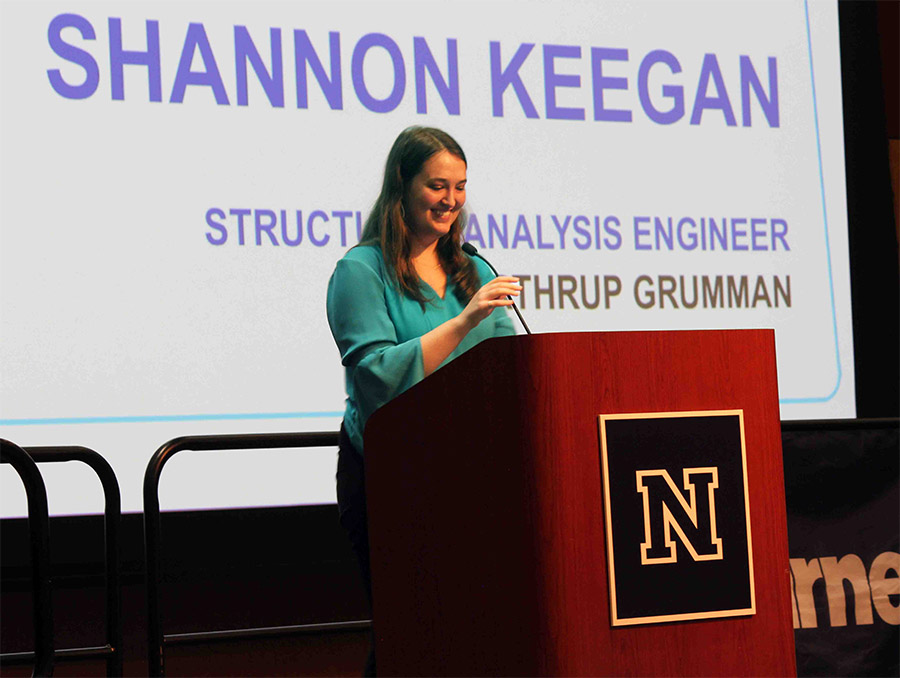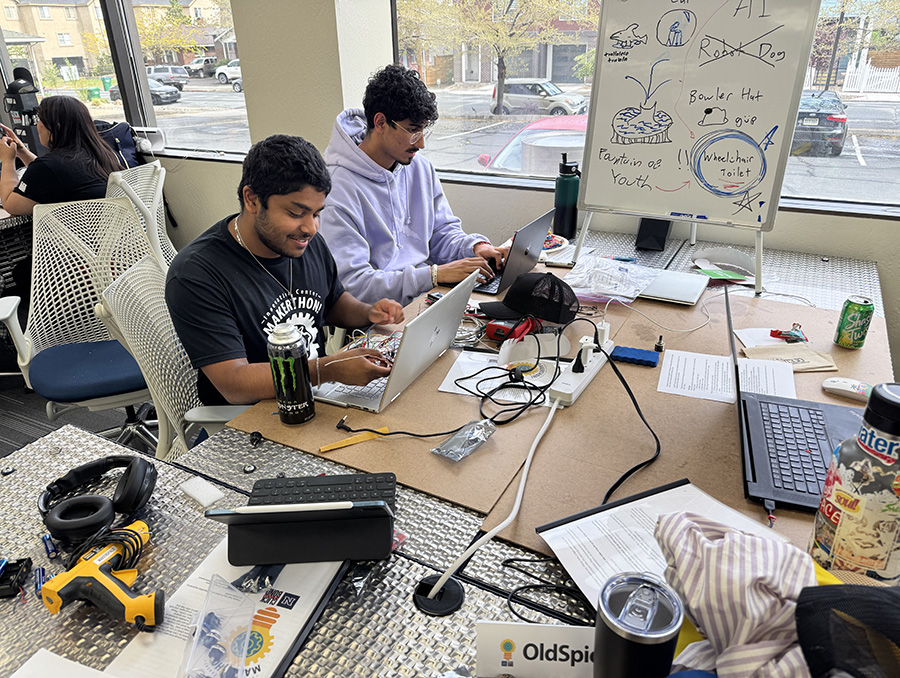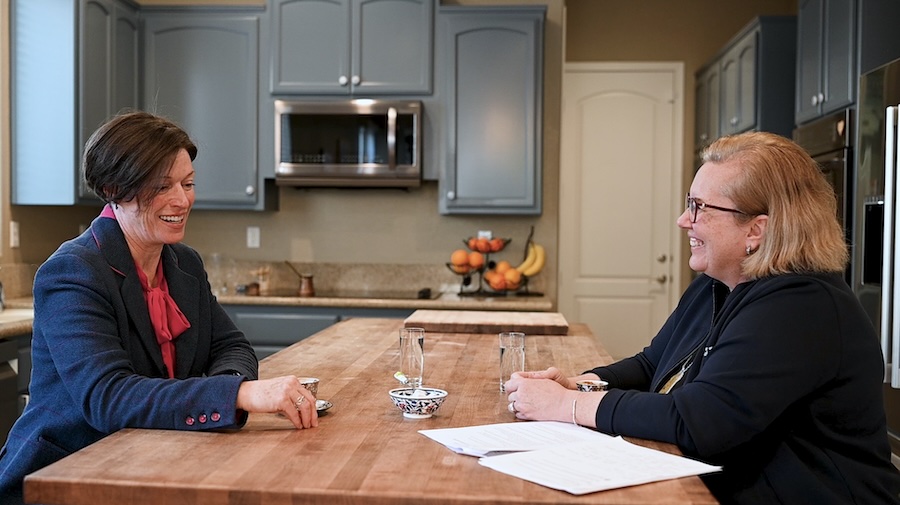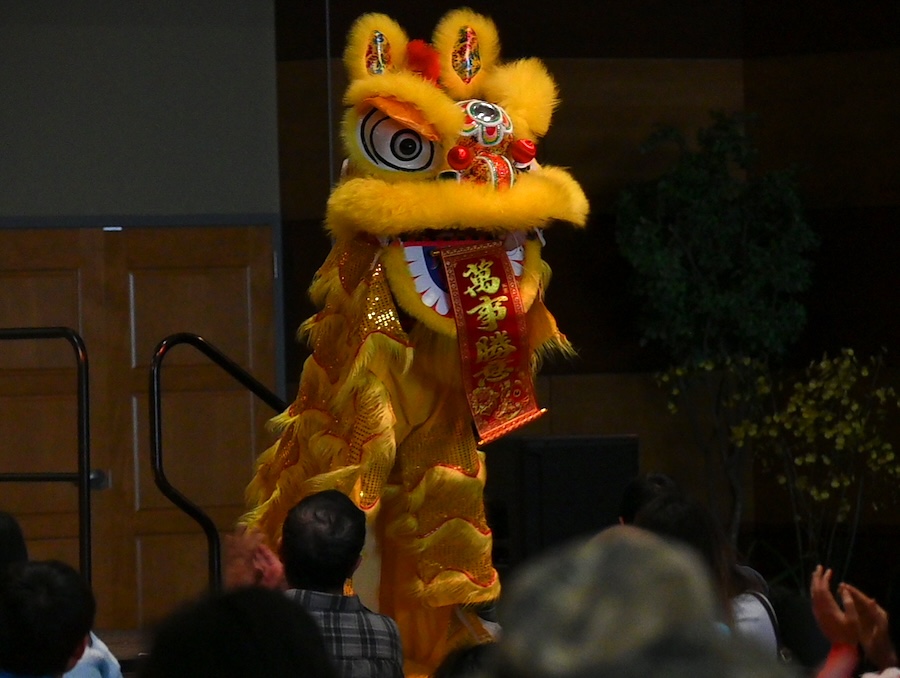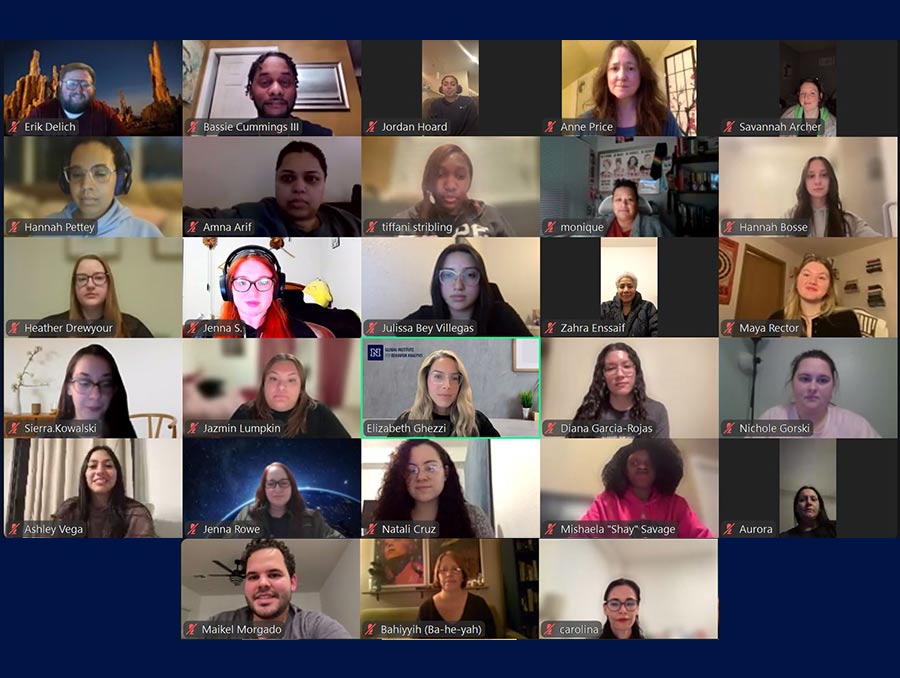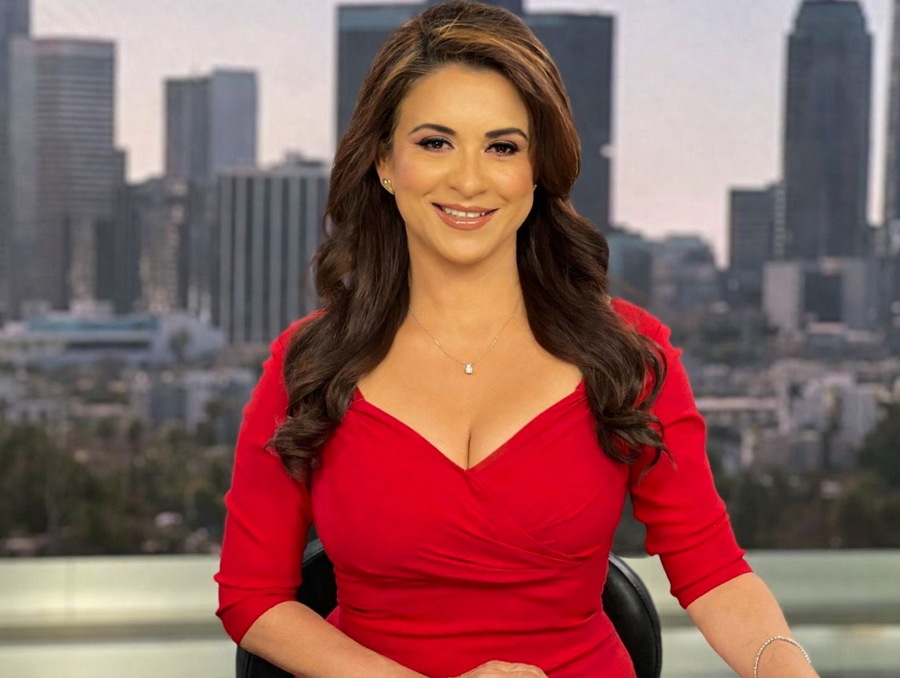The University's 2016 Tibbitts Award winners are in some ways a study in contrasts.
One is in her mid-30s. The other, in his early 60s.
One teaches a "hard" science, chemistry. The other teaches the starting place and foundation for all liberal arts education, English.
One is young enough to have small children. The other is old enough to personally recall the presidency of Lyndon Johnson.
One's career is still before her. The other has retired, with the closing of the 2016 spring semester.
And yet there are important similarities, key intersections of personality, commonalities in approach and willingness to constantly evolve and to learn as instructors, which speak to why Sarah Cummings and Don Hardy are the recipients of the University's highest teaching honor.
"On the one hand, I think there are no magical bullets to teaching," Hardy, taking stock of a 35-year teaching career, said recently during a phone conversation. "But on the other hand, if I was on the job for another 35 years, I'd still be looking for that special way to make connection with the students ... I'd still be looking for something to help them. The longer you stay in the job, the more you realize there is to learn to reach the students in meaningful ways."
"I really do think that you grow and evolve as an instructor," Cummings said during an interview in her office on the first floor of the Chemistry Building. "As time passes, you become more aware of the students ... those moments where you can sense they are struggling with content. You become better at picking up on the feeling in the room - when something is not clear. One of the things I've gotten much better at is simply the act of stopping, or slowing down, and asking the students, 'Now you understand this, right?' instead of plowing through the material without that kind of awareness."
When the Tibbitts Awards were presented in surprise presentations during the latter stages of the spring semester, in classrooms overflowing with students in the ultra-modern Davidson Mathematics and Science Center and the historic, ivy-covered Frandsen Humanities building, respectively, both Cummings and Hardy seemed genuinely surprised.
For Hardy, the moment was overwhelming enough that he almost forgot to introduce an important member of the class-crashing group led by Provost Kevin Carman. And no, it wasn't Carman he nearly overlooked. After Carman praised Hardy as a "truly distinguished scholar" and a group photo was taken, Hardy smiled at his wife, Heather. Heather Hardy, part of the Tibbitts presenting party, had served as College of Liberal Arts dean from 2005 before retiring in December.
A bit sheepishly, Hardy turned to his class and said, "Everyone, this is my wife, Heather."
Heather Hardy, afterward, said she could sense her husband, whom she described as "the classic overachiever" seemed surprised.
"He was absolutely surprised," Heather said. She stood outside of Frandsen only a few moments after Don had received the award. The afternoon sun was exceptionally bright as she spoke. She stole glances at the building in which her husband had spent so much time over the past decade-plus. "He puts his heart and soul into his teaching. I've always admired how a great deal of Don's identity revolves around his teaching. If the students don't do well, he takes it personally, and often will blame himself. He's a special teacher in that way."
In Cummings' case, she was rendered nearly speechless when Carman and several of Cummings' chemistry colleagues, including Robert Sheridan, a longtime mentor and friend, entered her classroom. Sheridan grinned at Cummings, who was in the midst of a pre-organic chemistry lecture, and said, a bit devilishly, "This looks like trouble."
As Carman shook her hand, Cummings managed a nervous smile and one of the shortest acceptance speeches in the Tibbitts' 43-year history at the University: "Umm ... thank you."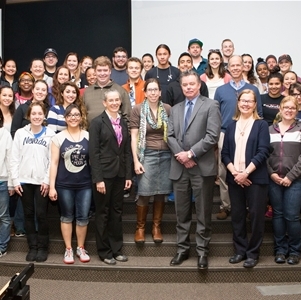
Later, Cummings reflected on the Tibbitts' selection process, which includes frequent classroom visits by Tibbitts committee members.
"The process isn't necessarily fun," she said. "It can feel very nerve-wracking at times. But, it was fun to meet other colleagues, from other disciplines ... meeting people I wouldn't normally meet on our campus was one of the highlights of the process for me."
Being considered for the campus' highest teaching honor was one thing.
Winning, however, proved just as nerve-wracking, Cummings said.
"I knew the way the award worked, and that if you won, at some point people would come walking into your classroom," she said. "I don't like being in the spotlight. It's so funny, because almost by definition when you talk about teachers, you are talking about people who are used to being on stage. But being caught off-guard, when you really aren't in control of the moment, that's usually not my favorite position.
"I think that was why I said so little when Provost Carman and the others walked in."
For Hardy, the timing of the award could not been more poignant. Over the past year, he had fought a tough battle with chronic lymphocytic leukemia and small lymphocytic lymphoma.
"One attacks the blood and one attacks the lymph nodes," Hardy said. Perhaps without even realizing it, Hardy had gone into teacher mode as he explained, in easily understandable terms the disease that had required six months of chemotherapy treatments. Hardy then added, with the type of calm and confident voice that might explain why he has been able to make such special connection with students for more than three decades, "If you're thinking about the cards you are dealt, this isn't the worst card you are dealt ... it really isn't. This is the type of cancer that almost always returns. Some people have six months' remission ... others have been in remission for 10 years. I'm hopeful. And what has helped me so much over the past year has been something that I find difficult to put into words." Hardy paused again, and then added, "Everybody I've known has been so unbelievably kind to me. That's really helped."
Hardy knew one thing during the six months of treatment, during which time he was on medical leave. He missed teaching. It was just as his wife knew: Teaching was who Don Hardy was. He knew that when he returned to the classroom this year, he wanted the experience to be enriching and exceptionally meaningful for his students.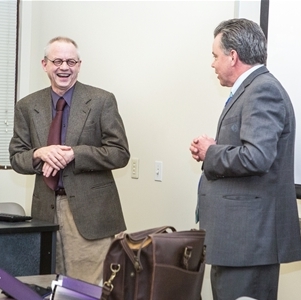
And personally, Heather Hardy said, it was important for her husband, who had decided this semester would be his last before he retired, that, "he finish on a positive note. Don really wanted to come back and finish this year on his terms."
Hardy had to overcome a case of pneumonia at the beginning of the semester and emergency abdominal surgery at the end.
In between, Hardy was "overwhelmed" with the attention he received. His students were beyond wonderful. They were extremely attentive, just as he'd hoped, and they were also caring in a way that exceeded Hardy's expectations. While he was on medical leave, Hardy's students sent him cards. When he returned to the classroom, many paid him the highest compliment students can ever pay an instructor - they had enrolled in the next sequence of classes he had committed to teach. They were back, in essence, for more.
"I think of them as 'kids' - they could practically be my grandchildren," Hardy said. "They were all so incredibly gracious and kind. It was remarkable how encouraging they were to me. A few of them shared their own stories with me, where they had a loved one, or a relative, who had gone through cancer. Their message was clear to me: Don't give up. To have these encouraging thoughts from these young people who are in the embryonic stages of adulthood is something I will always remember."
And then there were Hardy's English Department colleagues. His voice softened as he recalled the retirement party they had thrown him. He spoke of them, all of them, as one would members of a family. Hardy is a man of many talents, who in addition to being an expert on the works of Flannery O'Connor is also an avid gardener, and a pet keeper (a Maine Coon cat named Lamar and a Tabby named Lyndon Baines Johnson and a Cocker Spaniel named Lyle Lovett, all named in honor of Texas, the state where Don and Heather made their early professional careers, are in the couple's possession). He is also a musician. His English colleagues, knowing how much Hardy loves a good, lean, clean guitar lick, presented Hardy with a Fender Telecaster electric guitar during his retirement party.
"It's been a candid blessing to have something like this, all of this, happening during my final semester of teaching," Hardy said. "I've had a remarkably rich life, with really good friends, family and students. I love them all."
For Cummings, the Tibbitts Award was culmination of what many people in her own college and department had been saying for several years, practically from the time she began teaching at the University eight years ago: Here is an extremely gifted teacher.
Said Katherine McCall, associate dean for the College of Science and herself long considered an excellent physics instructor: "Sarah is one of our most effective instructors, in every way. She is an inspiring teacher, an empathetic and wise advisor, and an outstanding mentor for our student groups and teaching assistants. There is no one more deserving of the Tibbitts Distinguished Teacher Award than Dr. Cummings."
Cummings, who attended a strong liberal arts college, Haverford College, as an undergraduate, said it was in that somewhat unlikely environment that she realized something special can happen when a chemistry faculty is collaborative and nurturing not only of fellow faculty members, but of their students.
"I really admired the way the chemistry faculty was always available," she said. "It was so welcoming, and such a family-type environment."
It was while she was in graduate school, at Columbia University, that Cummings realized she might have an affinity for teaching. She was working with an undergraduate researcher, and it became quickly apparent that even if Cummings felt somewhat personally shy, the one-on-one interaction between a teacher and a student was something that just felt ... special. In a way that poetry can often see things that aren't really there, but can sense and feel them, so, too, did Cummings feel a taut connection as her thoughts scrambled from her, for consideration in the mind of her student.
"I've always enjoyed interacting one-on-one with people, more than with hundreds of people," Cummings said. "Watching that undergraduate researcher develop as a scientist - watching her apply concepts and make realizations on her own - that was very exciting to me. In many ways, it reminded me of how my undergraduate experience was, and how very meaningful it had been to me.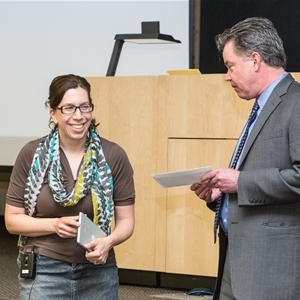
"I loved those interactions when I was an undergraduate. I loved the feeling of being supported, of being welcomed, of being encouraged to learn new things."
While the Tibbitts is emblematic of the respect that Cummings has earned for her teaching methods, she said she derives just as much satisfaction from mentoring her students. She enjoys the fact that even as her classroom sizes have increased, she still knows her students by name, and whenever possible, she works equally as hard at helping them learn outside of the classroom.
In the past, Cummings has served as a faculty mentor for the Women In Science and Engineering program, which is a living-learning community for 36 first-year female students in the STEM fields.
"That was a fabulous experience," Cummings said. "I enjoyed it so much because it was an opportunity to interact with a smaller group of students."
The experience, which was about five years ago, was memorable for another reason: Cummings found out only a few days before the group's annual August retreat at Lake Tahoe that she was pregnant with son Oliver.
"I remember I had to go bed early that first night of the retreat," Cummings said with a laugh.
One of Cummings' chemistry students then - and a soon-to-be graduate of the University of Nevada School of Medicine this weekend - Natasha Monga, recalled that Cummings was in many ways the perfect role model for the young women in WISE.
"She was always available to talk to, and was always so helpful," Monga said. "She was very relatable. I could go into her office and talk about organic chemistry, and other things, too ... why she chose chemistry and why she chose to pursue her Ph.D."
Although it's not the primary motivation in a career that already has impacted the direction of students like Natasha Monga, Cummings did acknowledge that she is proud that she and husband Brian Frost, who is one of the Chemistry Department's top researchers and graduate student mentors, have developed a good professional and personal balance in their lives. In addition to Oliver, the couple also has a daughter, Violet, 2.
In conversation with Hardy and Cummings, if there is one theme that binds the two together, it is the notion that two great teachers, in two decidedly dissimilar disciplines, can still find common professional and personal ground ... because at the center of both of their beings is an uncommon sense of humanity.
Both understand the technical aspects of teaching and aspire to always become better. Both seek out new ways of presenting material. But to bring the technical into its best pedagogical focus, both are masters at something just as important. They understand people. And perhaps more importantly, they have an innate grasp of what is important in life.
"I feel what I'm doing is meaningful, and I don't think anyone could ask for anything more than that," Cummings said.
"The degree to which the people have been incredibly kind, nice and generous over my time at the University ... it's all been so special to me," Hardy said. "Now it's time to go on to the next stage in my life. I look at how Heather has handled her retirement since December, and that has really helped ... the grace and enthusiasm with which she's accepted this next stage in her life. It's put aside all worry. I do know I'm going to miss teaching. I feel over the past few years, I've gotten better at it, and my students have grown kinder and more receptive to it.
"I know I am always going to miss that."
